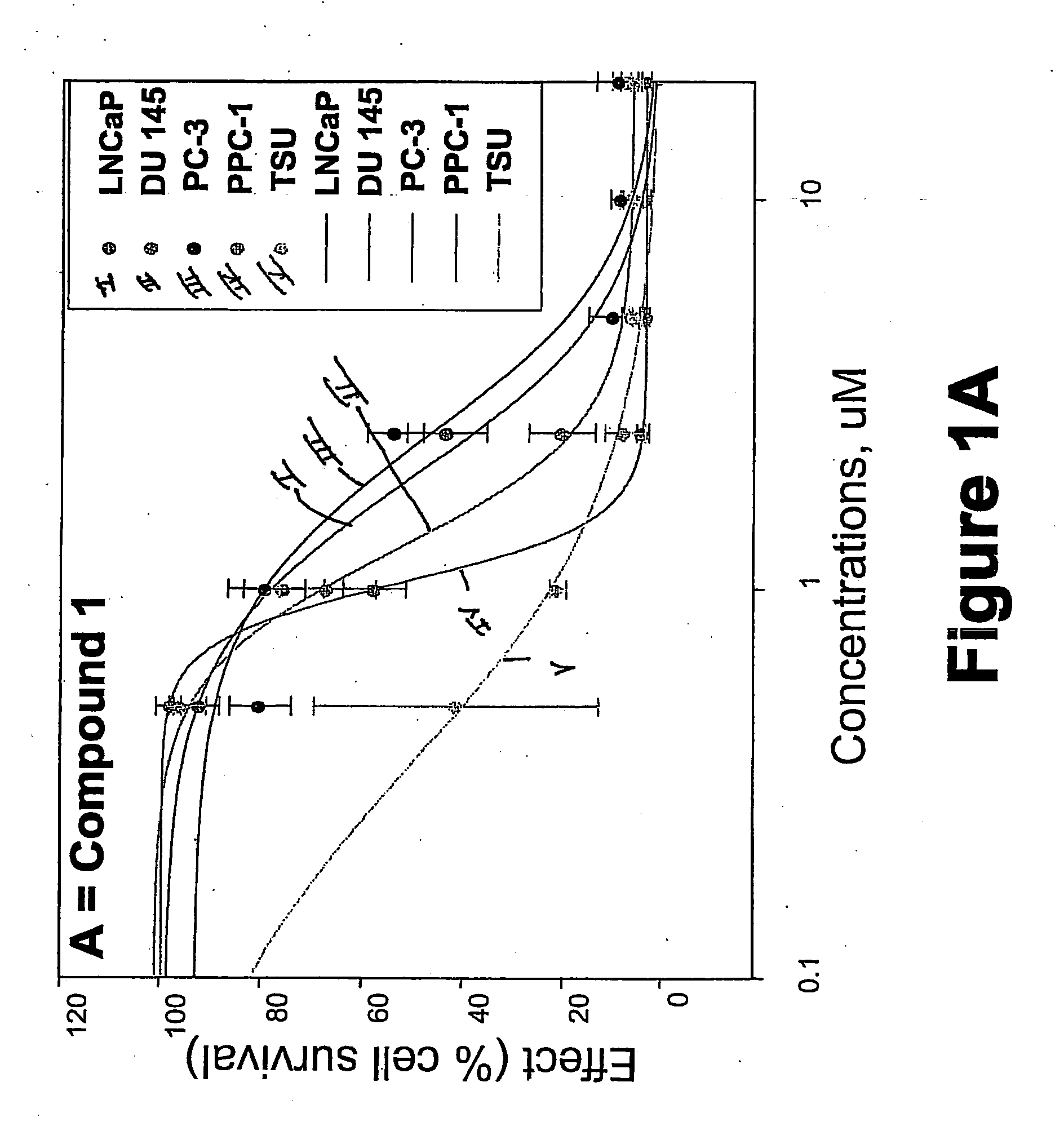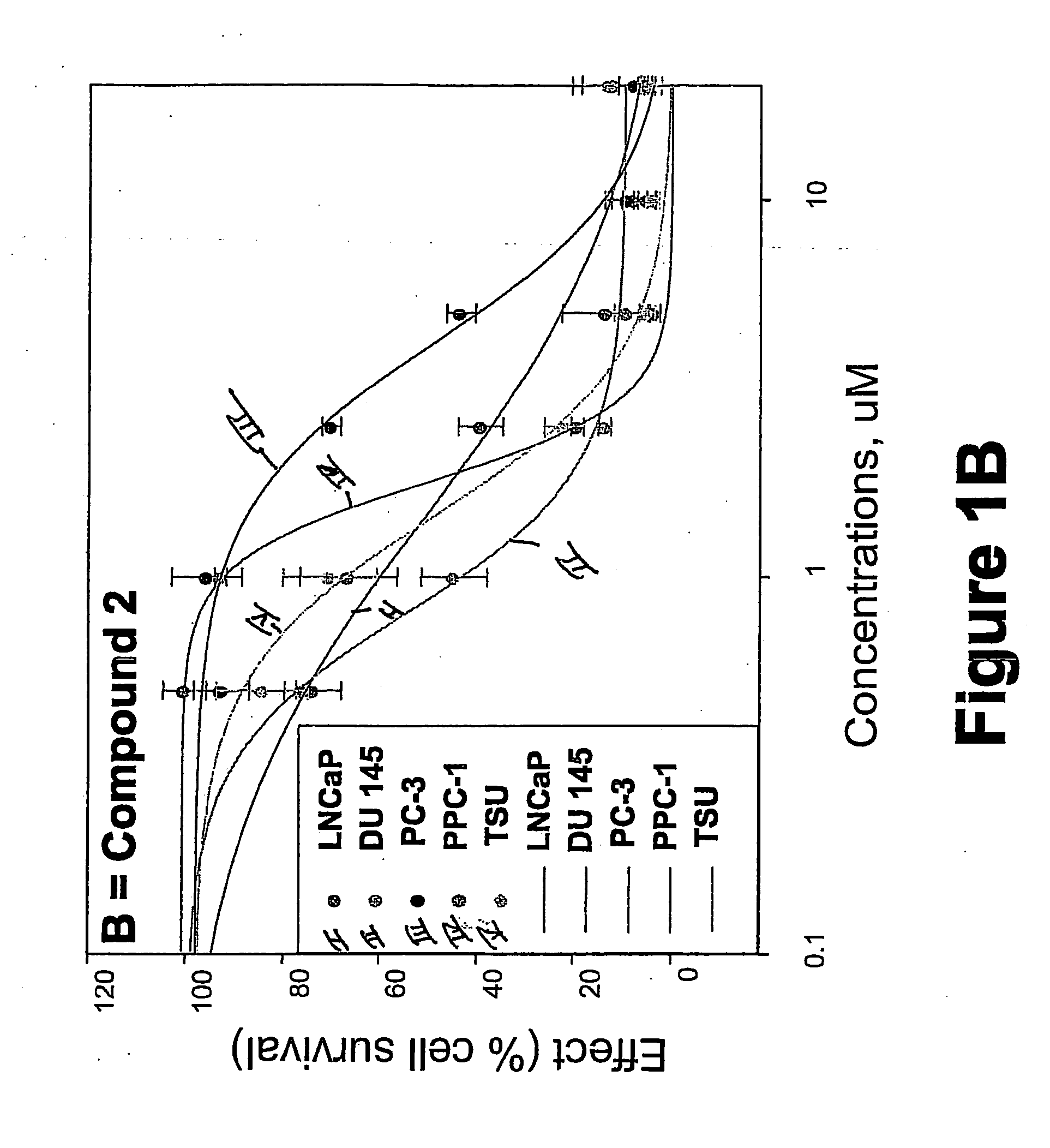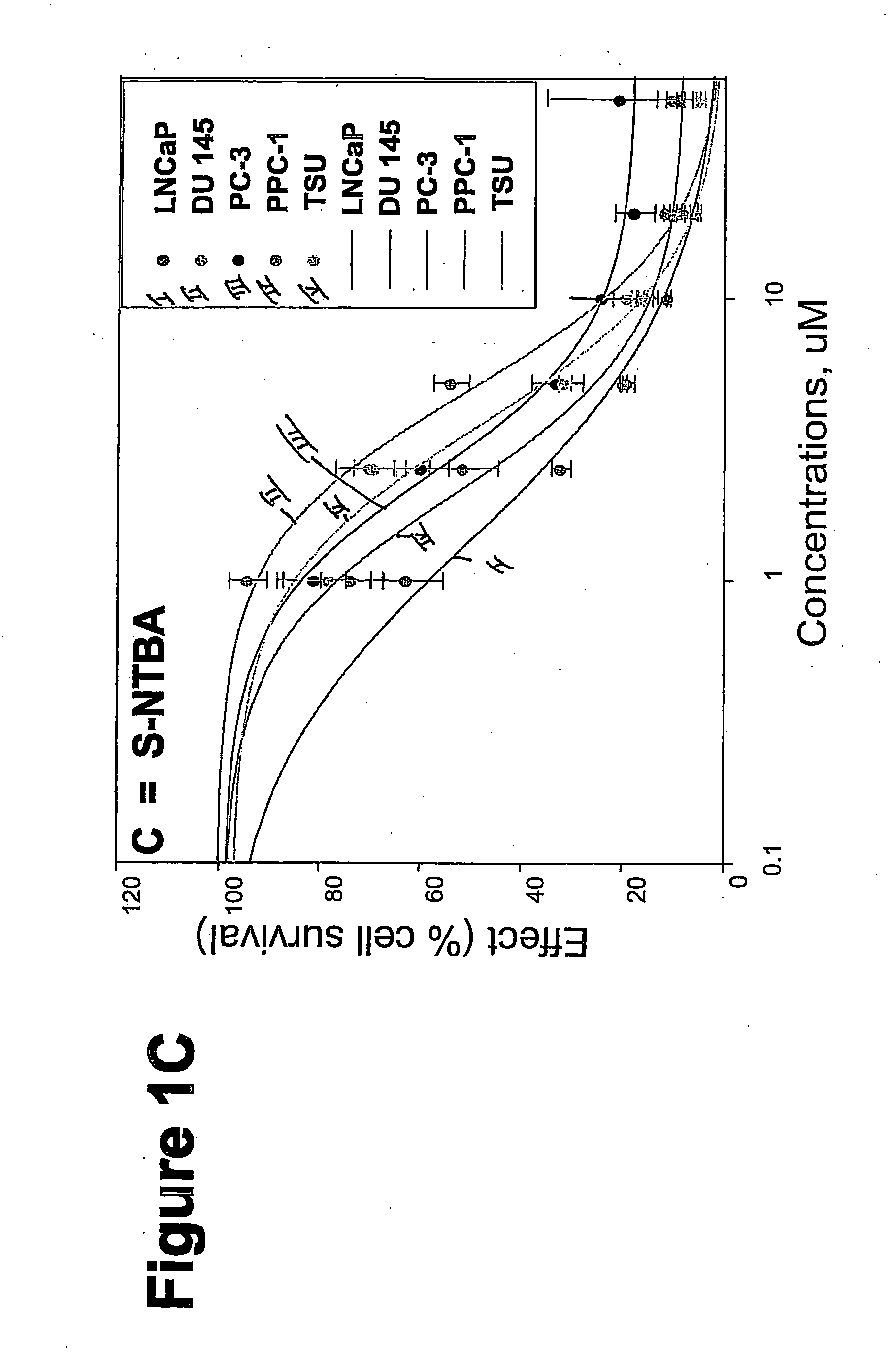Haloacetamide and azide substituted compounds and methods of use thereof
a technology of haloacetamide and azide, which is applied in the direction of biocide, phosphorous compound active ingredients, peptide/protein ingredients, etc., can solve the problems of affecting cell growth, cell cycle arrest and/or cell death, and injuring both neoplastic and normal cell populations, etc., to suppress, inhibit or reduce the incidence of cancer
- Summary
- Abstract
- Description
- Claims
- Application Information
AI Technical Summary
Problems solved by technology
Method used
Image
Examples
example 1
Cell Lines
[0321] The origins of the cell lines used in the studies described herein are shown in Table 1 below:
TABLE 1Cell lineMorphologyOriginPatientLNCaPEpithelialNeedle aspiration50-year-old white male withbiopsy of lefttage D1 prostatic cancersupraclavicularlymph nodeDU 145EpithelialMetastatic CNS69-year-old white male withlesionmetastatic carcinoma of theprostate and a 3 year history oflymphocytic leukemiaPC-3EpithelialProstatic62-year-old male Caucasian withmetastatic bonegrade IV prostaticmarrowadenocarcinomaPPC-1EpithelialTransurethral67-year-old black male with(primary prostateresection of thestage D2 poorly differentiatedcarcinoma-1)prostateadenocarcinoma of prostateTSUEpithelialMetastatic73-year-old male Japanese with atumor in amoderately differentiated prostaticcervical lymphadenocarcinomanode
Cell Culture
[0322] Prostate cancer cell lines were obtained from ATCC. All cells were grown in RPMI-1640 medium containing 2 mM L-glutamine supplemented ...
example 2
Effect of Haloacetamide Substituted Compounds in Different Cell Lines
[0325] METHODS: LNCaP, DU145, PC-3, TSU, and PPC-1 cells were cultured in 96-well plates and treated with increasing concentrations of the compound of interest for 4 days. Cell survival was determined by the sulforhodamine B assay and was plotted as a percentage of control (drug-free wells) versus drug concentration. The concentration of drug that inhibited cell growth by 50% (IC50) was determined by non-linear regression. Known anticancer drugs were used as cytotoxic positive controls.
[0326] RESULTS: The IC50s of Compounds A and B, as well as S-NTBA, 5-FU and Melphalan in prostate cancer cell lines DU 145, PC-3, TSU, PPC-l and LNCaP are shown in Table 1. The cytotoxicity of compounds A, B and S-NTBA in different cell lines are shown in FIG. 1 A-C, respectively. Compounds A and B demonstrated IC50 values in the low micro-molar range in inhibiting the growth of all of five prostate cancer cell lines.
[0327] LNCAP ...
example 3
Effect of Haloacetamide Substituted Compounds on Cell Growth
[0329] MATERIALS: DMSO is the vehicle control and the solvent for Compound A and Compound B.
[0330] METHODS: Cells were plated at 5-10×104 cells / well in five 6-well plates and incubated at 37° C., 5% CO2 for 24 h to allow the cells sufficient time to attach and be in log phase growth at the start of the experiment. The media was aspirated from four of the plates and replaced with media containing vehicle control (DMSO) or drug dissolved in DMSO. The total volume of DMSO / drug added to each well was equal to 0.1% of the media volume in each well. LNCaP, PC-3, MCF-7, and CV-1 cells were treated with vehicle control, and increasing concentrations of Compound A and Compound B (0.01, 0.05, 0.1, 0.5, 1.0, 5.0, and 10.0 μM). Three wells were treated with the same concentration of the drugs or DMSO for each treatment condition listed above. The cells from the remaining 6-well plate were collected and counted to deter...
PUM
| Property | Measurement | Unit |
|---|---|---|
| pH | aaaaa | aaaaa |
| temperature | aaaaa | aaaaa |
| pH | aaaaa | aaaaa |
Abstract
Description
Claims
Application Information
 Login to View More
Login to View More - R&D Engineer
- R&D Manager
- IP Professional
- Industry Leading Data Capabilities
- Powerful AI technology
- Patent DNA Extraction
Browse by: Latest US Patents, China's latest patents, Technical Efficacy Thesaurus, Application Domain, Technology Topic, Popular Technical Reports.
© 2024 PatSnap. All rights reserved.Legal|Privacy policy|Modern Slavery Act Transparency Statement|Sitemap|About US| Contact US: help@patsnap.com










